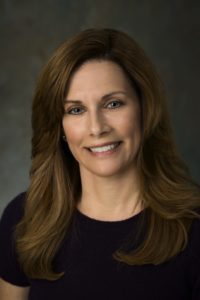

Laura Baldwin, Managing Director of Golden Seeds
January 23, 2020
Just because a medical problem is common and treatable, doesn’t mean it gets the attention it deserves. This was the case with pelvic floor disorders, which can cause a wealth of chronic health issues. Consortia Health & Wellness was founded to treat these issues and, “to help women and men of all ages regain pelvic strength, control and confidence.”
Lauren West joined the company over a year ago as Chief Operating Officer. During her time with the organization, she’s been helping Consortia Health expand to more markets, develop its app, and grow its partnerships. Lauren recently got together with Laura Baldwin, Managing Director of Golden Seeds to discuss the challenges Consortia Health faces, how it’s overcoming them and what’s next.
LW: Consortia Health was founded seven years ago by Jeff Oliva, who is based out of Austin, Texas. Jeff’s goal was to serve the unmet need of pelvic floor disorders. Even though these are an extremely common clinical problem — up to one-in-three women suffer from bladder leaks — these patients are extremely underserved. The company has since grown to approximately 100 employees.
LW: We provide clinically-relevant individualized diagnosis, therapy and education to help physicians treat their patients with incontinence, pelvic pain, sexual dysfunction and other pelvic disorders.
The name Consortia Health really gets at what is different about us. A consortium is a partnership, and that really is our business model. We partner with a variety of different providers to address pelvic floor disorders. We partner with physicians, senior living communities and hospital-based medicine, as well. And, of course, we consider ourselves partners to our patients. Partnering with a variety of entities in the marketplace is really a differentiator.
We have a unique business model, which is a turnkey approach to address a large, underserved component of healthcare providers’ client base: patients suffering from pelvic floor disorders. We provide the clinicians, the appointments and the equipment so providers don’t need to focus on those elements.
Then, on the treatment side, we see approximately a 98% symptom improvement in our patient population. We are proud of that and it resonates with our team members, because they get that instant feedback about a patient’s improved quality of life. That is super rewarding for us as a leadership team, but also for our clinicians in the field.
LW: Integrating a unique healthcare offering into a legacy healthcare system has been the biggest challenge we have faced. We are constantly working on ways to scale around that challenge every day so we can directly service consumers.
We do this through a variety of platforms. We started in the physician office space, but we have grown to providing this service in hospital settings and senior living facilities, as well. We have also launched a Consortia Health app to help us provide the service directly to consumers — to reach them when they are not able to access a clinic. The app provides a format so that when patients leave the exam room, they can now access tools and information at home. The app is available on iOS and Android platforms through the app stores.
Of course, there have been challenges around the app as well. Specifically, continuing to build and grow the app. We continue to look for partners to work with us on the app including vendors who want to place their products on our e-commerce site or to advertise on the site. Our goal is to leverage the app as a platform to bring devices, supplies and eventually therapy options directly to consumers. Our vision of what that can be over the next year or more is really exciting.
LW: Right now, we are in the initial stages of rolling out in a brick-and-mortar space with a hospital group. We recently had a public announcement around a partnership with a rural healthcare hospital group, Ballad Health, which is a huge provider in many rural markets including 29 counties of Northeast Tennessee, Southwest Virginia, Northwest North Carolina and Southeast Kentucky. We will be working together to improve healthcare and study the effectiveness of treatments for the elderly in the Appalachian Highlands region of Tennessee and Virginia.
We also continue to rapidly expand in the senior health and wellness arena. We are excited about a relationship with a very large national vendor in the space that operates both independent and assisted living facilities nationwide.
We are continuing to grow our footprint and expanding in physician partnerships, as well. We have a presence in nine states now, which is very exciting for us.
LW: First and foremost, it is important to be resilient and nimble; it often takes longer than you think to gain traction and hold in the marketplace. For example, at Consortia Health, we are a unique offering that is trying to disrupt a system, so it takes longer to scale than you would anticipate.
As you grow as a company, the next step is putting the structure behind that, so you have a good corporate culture, a clear mission and values that people can invest in personally and feel connected to. We spent a good deal of time working on all those things, and for early stage founders those are key areas to think through: Why are you doing what you’re doing? What are your corporate values? How do you promote those as you grow and scale?
LW: Since both Golden Seeds and Consortia Health are primarily female focused, there is a strong synergy between the two of us. Golden Seeds has given us a forum and platform to get our information out there, and through our relationship we had the fortune of being introduced to some wonderful investors.
We have also gained some great feedback and recommendations for how we should scale, which we have digested and synthesized to meet our objectives and goals. Having those resources, and people willing to give advice to a growing company, is greatly appreciated.
Learn about Golden Seeds work.